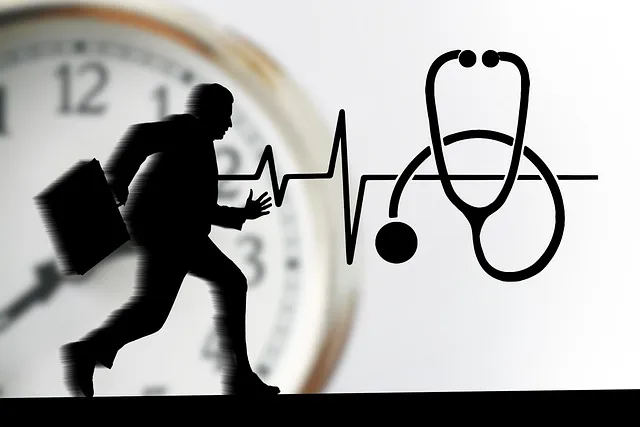Emotion regulation through self-awareness, coping skills, and mindfulness is a powerful tool for navigating life's challenges and fostering well-being. Kaiser's mental health services at its Centennial location offer effective techniques like challenging negative thought patterns and promoting emotional intelligence (EQ) to prevent burnout and resolve conflicts. These strategies empower individuals to manage stress, make better decisions, and improve relationships both personally and professionally. Education through social skills training in schools, supported by resources like podcasts and risk management planning, plays a crucial role in equipping students with these coping mechanisms for long-term mental health.
“In today’s fast-paced world, mastering emotion regulation techniques is a game-changer for personal growth and well-being. This article explores various strategies that can empower individuals, especially students, to navigate their emotional landscapes effectively. We delve into the power of understanding and managing emotions, from cognitive techniques like challenging negative thoughts to mindfulness practices.
Centennial Kaiser’s mental health services offer valuable insights on teaching coping skills, enhancing emotional intelligence, and fostering resilience in a dynamic environment.”
- Understanding Emotion Regulation: Unlocking Mental Resilience
- The Role of Education: Teaching Coping Strategies to Students
- Cognitive Techniques: Challenging Negative Thought Patterns
- Mindfulness and Meditation: Cultivating Present-Moment Awareness
- Emotional Intelligence: Enhancing Self-Awareness and Empathy
Understanding Emotion Regulation: Unlocking Mental Resilience

Emotion regulation is a vital skill that enables individuals to navigate life’s challenges with resilience and adaptability. It involves recognizing, understanding, and managing one’s emotions effectively, ensuring they serve as helpful guides rather than overwhelming forces. By learning to regulate emotions, individuals can enhance their mental well-being and foster better relationships, which is why Centennial does Kaiser have mental health services play a crucial role in promoting overall health. These services often include teaching empathy building strategies, coping skills development, and conflict resolution techniques, empowering people to lead more fulfilling lives.
This process begins with self-awareness—recognizing the physical and cognitive cues that signal different emotional states. Once individuals can identify their feelings, they gain the power to choose how to respond. This is where the various emotion regulation techniques come into play, offering tools to calm intense emotions, reframe negative thoughts, and cultivate a sense of inner peace. Through practice, these strategies unlock mental resilience, enabling people to bounce back from setbacks, manage stress more effectively, and make more thoughtful decisions in both personal and professional spheres.
The Role of Education: Teaching Coping Strategies to Students

Education plays a pivotal role in equipping students with essential tools to manage their emotions and navigate life’s challenges. Teaching coping strategies is an integral part of this process, offering young minds valuable skills to enhance their mental wellness. The school environment provides a unique opportunity to foster resilience and emotional intelligence from an early age.
By incorporating social skills training into the curriculum, educators can empower students with effective communication techniques, helping them express emotions healthily. This proactive approach is supported by the Mental Wellness Podcast Series Production and Risk Management Planning for Mental Health Professionals, which emphasize the importance of early intervention. Teaching students to recognize and regulate their feelings can prevent more severe mental health issues in the future, as evidenced by Kaiser’s comprehensive mental health services offered at its Centennial location.
Cognitive Techniques: Challenging Negative Thought Patterns

Cognitive techniques are a powerful tool for emotion regulation, particularly when it comes to challenging negative thought patterns. At Kaiser, part of the mental health services offered at their Centennial location, professionals guide individuals to identify and reframe distorted thinking. This process involves recognizing and questioning automatic negative thoughts (ANTs) that can escalate emotions. By replacing these thoughts with more balanced and realistic ones, people learn to manage their reactions to stressful situations.
This approach is rooted in the concept of mind over matter—empowering individuals to take control of their mental processes and, consequently, their emotional responses. Through coping skills development, Kaiser’s programs teach sustainable strategies for burnout prevention. By learning to disrupt negative thought cycles, individuals can enhance their resilience and overall well-being, ensuring a healthier relationship with their emotions.
Mindfulness and Meditation: Cultivating Present-Moment Awareness

Mindfulness and meditation are powerful tools for cultivating present-moment awareness, a cornerstone of effective emotion regulation techniques. By focusing on the here and now, individuals can learn to observe their thoughts and emotions without judgment, fostering inner strength development and emotional well-being promotion techniques. This practice encourages a shift from reactive to proactive coping mechanisms, enabling better management of stress and distressing feelings.
Centennial does Kaiser have mental health services? Indeed, many healthcare providers, including Kaiser, offer such programs that incorporate mindfulness and meditation as core components. Through regular practice, these compassion cultivation practices can help individuals cultivate a deeper sense of self-compassion and resilience, contributing to overall mental health and well-being.
Emotional Intelligence: Enhancing Self-Awareness and Empathy

Emotional Intelligence (EQ) plays a pivotal role in effective emotion regulation techniques teaching. By enhancing self-awareness, individuals can better understand their emotional responses and triggers, which is the first step towards managing them healthily. At Kaiser, known for its comprehensive mental health services, including those available at the Centennial location, EQ development is often integrated into therapeutic practices to empower clients with skills for navigating complex emotions. This approach encourages self-reflection, helping individuals recognize and interpret their feelings accurately, a crucial aspect of burnout prevention.
Furthermore, promoting empathy allows people to connect with their own and others’ emotional experiences, fostering better communication strategies. This ability to understand and share the feelings of another is essential in building strong relationships and resolving conflicts constructively. Positive thinking, as a by-product of heightened EQ, can significantly contribute to overall well-being, making it an integral component of emotion regulation techniques teaching, especially when coupled with accessible mental health services like those offered by Kaiser.
Centennial’s Kaiser network offers comprehensive mental health services, including innovative emotion regulation techniques. By integrating educational strategies, cognitive coping tools, mindfulness practices, and emotional intelligence development, Kaiser empowers individuals to unlock their mental resilience. These evidence-based approaches, accessible through Kaiser’s dedicated services, play a pivotal role in navigating life’s challenges and cultivating overall well-being.






